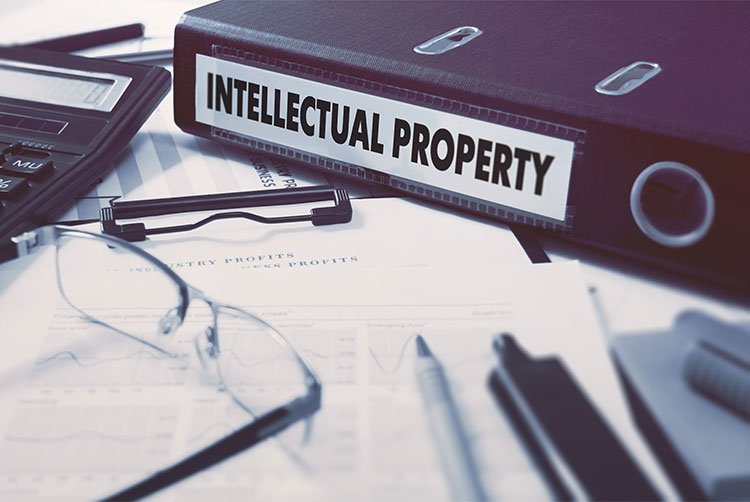Table of Contents
Intellectual Property Licensing Agreements: Protecting & Maximizing Value
In today’s digital world, intellectual property (IP) is one of the most valuable assets a business can own. Whether it’s a trademark, patent, copyright, or trade secret, companies invest heavily in developing and safeguarding their IP. One of the most common ways to generate revenue and expand the reach of intellectual property is through licensing agreements. A well-drafted intellectual property licensing agreement can open new revenue streams, protect proprietary information, and avoid future disputes.
At SK Legal, our team of skilled intellectual property licensing agreement lawyers helps businesses secure, draft, and negotiate IP licensing agreements that align with their strategic goals. From tech companies to creative industries, we offer legal solutions designed to capitalize on intellectual property and minimize legal risks.
What is an Intellectual Property Licensing Agreement?
An intellectual property licensing agreement is a legal contract where the owner (licensor) of intellectual property grants permission to another party (licensee) to use the IP, usually in exchange for compensation. This type of agreement allows businesses to expand their reach by sharing the use of their proprietary assets while still retaining ownership. Licensing agreements can cover many types of intellectual property, including:
- Trademarks – Brand names, logos, and slogans that differentiate a company’s products or services.
- Patents – Inventions or processes that provide a new way of doing something.
- Copyrights – Artistic and literary works like music, books, and software.
- Trade Secrets – Confidential business information that gives a competitive edge.
The Importance of a Properly Drafted Licensing Agreement
Licensing intellectual property is a strategic business decision, but it also requires meticulous planning. A well-structured agreement outlines the terms of use, duration, compensation, and restrictions related to the IP. Poorly drafted agreements can lead to misunderstandings, lost revenue, and even legal battles. Working with a legal team like SK Legal ensures that every aspect of the agreement is tailored to your business needs and future goals.
A comprehensive intellectual property licensing agreement covers the following:
- Scope of License: The agreement must clearly define how the licensee is allowed to use the IP, including the geographic areas, industries, and specific products or services it can be applied to.
- Exclusivity: The agreement may be exclusive (where only one licensee can use the IP) or non-exclusive (where multiple parties can use the IP).
- Compensation: The licensor may receive royalties, lump-sum payments, or other forms of compensation in exchange for granting the license.
- Duration: It’s essential to specify the duration of the agreement and any conditions for renewal or termination.
- Quality Control: To maintain the integrity of the IP, the agreement often includes provisions requiring the licensee to adhere to specific quality standards.
- Dispute Resolution: Every agreement should include provisions for resolving disputes, such as through mediation, arbitration, or litigation.
Types of Intellectual Property Licensing Agreements
Depending on the nature of the intellectual property and business goals, various types of licensing agreements may be used:
- Trademark Licensing: Allows a licensee to use the licensor’s trademark in connection with specific goods or services.
- Patent Licensing: Grants the licensee the right to make, use, sell, or distribute an invention.
- Copyright Licensing: Permits the use of artistic works, such as music, books, or software, under specified terms.
- Technology Transfer Agreements: Facilitates the exchange of technology or innovation between parties.
- Know-How Licensing: Allows the transfer of non-patented proprietary knowledge, including trade secrets, processes, or techniques.
Benefits of Licensing Intellectual Property
Licensing intellectual property provides numerous benefits for both the licensor and the licensee. For the licensor, it’s an excellent way to generate revenue without directly manufacturing or selling products. For the licensee, it offers access to proprietary technology, brands, or creative works, enabling them to enter new markets or enhance their product offerings.
Benefits for the Licensor:
- Revenue Generation: Licensors receive compensation for granting the license, often in the form of royalties.
- Market Expansion: Licensing allows IP owners to expand into new markets without direct involvement or investment.
- Brand Strengthening: By licensing trademarks, companies can increase brand recognition and value.
- Focus on Core Business: Licensing enables companies to concentrate on their primary operations while still benefiting from their IP.
Benefits for the Licensee:
- Access to Innovation: Licensees gain access to cutting-edge technology or popular brands without the time and expense of development.
- Reduced Risk: Licensing eliminates the risk associated with developing new products or services from scratch.
- Competitive Edge: Using established intellectual property gives companies an advantage in crowded markets.
How SK Legals Intellectual Property Licensing Agreement Lawyers Can Help with Licensing Agreements
At SK Legal, we recognize the complexities involved in structuring and negotiating intellectual property licensing agreements. Our intellectual property licensing agreement lawyers have extensive experience guiding clients through every stage of the process, from initial negotiations to dispute resolution. We tailor agreements that protect your interests, minimize risks, and maximize the value of your intellectual property assets.
Our team offers the following services:
- Negotiating and Drafting Agreements: We create customized agreements tailored to your business needs and industry standards.
- Assessing Licensing Strategies: We help businesses evaluate potential licensing strategies that align with their commercial goals.
- Dispute Resolution: Our legal team assists in resolving conflicts related to licensing agreements, whether through negotiation, mediation, or litigation.
- Due Diligence: We perform thorough due diligence to ensure all intellectual property is protected and adequately documented before entering into agreements.
Why Choose SK Legals Intellectual Property Licensing Agreement Lawyers for Intellectual Property Licensing?
At SK Legal, we pride ourselves on offering practical, forward-thinking solutions for businesses of all sizes. Whether you’re licensing your IP for the first time or renegotiating an existing agreement, our legal team ensures that every detail is carefully considered. With a client-first approach, we hel
p you make informed decisions that strengthen your business’s intellectual property portfolio.

What is an intellectual property licensing agreement?
An intellectual property licensing agreement is a contract in which the owner of intellectual property (IP) grants permission to another party to use that IP under specific terms.
Why is it important to have a licensing agreement?
A licensing agreement ensures that both parties understand how the IP can be used, how compensation will be handled, and what restrictions are in place, preventing future disputes.
What are the different types of IP that can be licensed?
Trademarks, patents, copyrights, trade secrets, and know-how can all be licensed, depending on the needs of the licensor and licensee.
How long does a typical IP licensing agreement last?
The duration of an IP licensing agreement varies but is typically outlined in the contract. Some agreements may be set for a specific number of years, while others may be ongoing.
Can an IP licensing agreement be terminated early?
Yes, many agreements include termination clauses that allow either party to end the contract under certain conditions, such as a breach of contract.
How are royalties calculated in a licensing agreement?
Royalties can be calculated as a percentage of sales, a fixed amount per unit sold, or as a lump-sum payment, depending on the agreement’s terms.
What is an exclusive licensing agreement?
An exclusive licensing agreement means that only one licensee can use the intellectual property, while a non-exclusive license allows multiple parties to use the IP.
How does SK Legal help with licensing disputes?
SK Legal assists in resolving licensing disputes through negotiation, mediation, or litigation, depending on the situation.
Can a licensing agreement cover multiple countries?
Yes, licensing agreements can be drafted to cover specific geographic regions, including international markets.
Do I need a lawyer to draft a licensing agreement?
Yes, working with a lawyer ensures that your licensing agreement is comprehensive, legally enforceable, and aligned with your business’s goals.
- Contract Law Across Countries (Canada and United States)
- Cross Border Services (United States and Canada)
- SK Legal – Contingency Engagements for 100% Success – Serving all of British Columbia and Alberta
- Navigating Personal Injury Claims with SK Legal as Your Trusted Lawyer in Alberta
- SK Legal: Your Trusted Lawyer for Personal Injury Claims in Alberta and British Columbia

